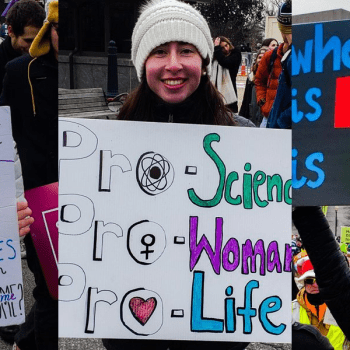
Silence, listening to the voice of God, a personal encounter with the living God, deep prayer… Most of us say we want these, but does our spiritual environment produce them? Reflecting on how society twists our material desires makes me think about how it twists our spiritual desires. Recognizing the need to fulfill our natural desire properly, should lead us to also see the need to fulfill our spiritual desires. I think there is an analogy between the distorted or organic fulfillment of physical desires and their application to our prayer.
Distorting our Desires
In late 2018, Matt and Elizabeth Breunig had an episode of the podcast called “The Hedonistic Blitzkrieg.” They pointed to all kinds of things that distort our natural desires.
Modern commercial food often creates similar artificial dopamine spikes. The cereal or cholate is sweet beyond what is natural. French fries are so coated with unnaturally high levels of fat that a Harvard nutrition scientist recommended a healthy serving is six fries. The Bruenigs commented on how hard it was to find healthy food for their toddler.
Likewise, although man has traditionally used drugs to get high, modern illegal drugs take this to a new level. We have had plants for years but many of the synthetic versions of opioids are that much more powerful. They deliver such a rush of dopamine and endorphins that the person feels instantly euphoric. However, in their extreme forms, they so overwhelm us that it is deadly. Fentanyl is deadly at two milligrams or about a grain of sand, and Carfentanil is deadly at 1/100th of that amount which is almost invisible.
Like food and drugs, pornography distorts our dopamine. It is not images of “normal” sex in a loving relationship, but of sex specifically designed to produce extreme hormone spikes. It is artificial just like the food and drugs above. It takes it out of a deep interpersonal relationship to isolate what drives dopamine spikes. Right now new cases of erectile dysfunction in young males are appearing because their desires are so twisted by fake sex that real sex isn’t satisfying.
The Breunigs note how much they fight the desire for fake food with their toddler. Thinking about this and looking at my own nephews and niece, I noticed something different. One sister recently posted about her son’s love of unsalted pistachios, and when at my other sister’s house, her son kept asking for canned tuna. Tuna and pistachios may not be the healthiest foods a kid can eat but they are far from the candy, soda, and chips most kids ask for.
I come from a rather unique family in this regard. My parents run an organic farm, my sister runs a farm to table blog, and they eat what they grow or locally as much as is possible in Canada. Before they started farming, I grew up eating venison my dad hunted. One moment might show how unusual my family is: I was visiting in the summer and, after dinner, my mom brought out fresh organic cherries. My dad immediately asked where they were grown and my mom knew the answer.
So, my parents were good at keeping me from artificial desires regarding food. My rebellion in college – when they could no longer guide my desires – was drinking Wild Cherry Pepsi at every meal just because I could.
Since listening to this episode of the Bruenigs, every time I see chocolates or similar in our house, I think back to it. Am I going along with society’s tendency to artificially fulfill my desires? Wouldn’t I be better off eating that orange or handful of peanuts? I am not perfect in eliminating artificial fulfillment of my desires for food but I think I’ve gotten better. One of the Bruenigs main points was that society makes it very difficult for us to fight this artificiality alone.
We see the rise of different eating trends focusing on organic, fresh, and/or local foods. Our natural needs for food are in a way better satisfied with such natural foods as opposed to the big commercial chemical food so common in society.
Like the movement towards more balanced food, movements against the artificial sexuality of pornography have risen up. We have seen the growth of groups like no-fap, which promote abstaining from pornography and masturbation. Even to non-religious people, this has value in self-mastery.
Distorting Spirituality
As a priest, an obvious thought following this was how this might affect our desires for prayer, for spirituality and ultimately for God. How difficult it is to let go of our phone and actually be quiet enough that God can speak to us.
People might think that as a priest, I am somehow immune from this but I am not. I have an app on my phone to lock me out from almost all my apps so I can focus for my daily hour of prayer (but still get emergency calls or texts).
Our search for God is a search for meaning. Our fast-paced culture where Google seems to answer every question can easily make us forget that need for meaning. However, Google can only tell us external knowledge. It can give us the definition of a word but can’t tell us why words have meaning to begin with. It can pull up the Gospel descriptions of Jesus but can’t give you internal knowledge of Jesus like comes in prayer.
Google and social media can repeat these superficial meanings ad infinitum. We never get to the deeper meanings as we hear so many superficial meanings drowning them out.
Not only does society tend to obscure deeper meaning, but it also tends to create artificial gods that look brighter and shinier than God. How often do people say “I’m low on battery” when they really mean their laptop or cell phone is low on battery? Likewise, with a never-ending stream of Netflix or YouTube we can easily make that a substitute God. Even some reporting on celebrities is akin to pagan legends of the gods.
Man’s creations seem to satisfy those desires that traditionally have been associated with God or gods. We might be Christians who attend Sunday Mass and occasionally pray but still be caught in this.
Organic Prayer and Silence
We won’t get out of the cycle of superficial meanings and false gods automatically. We need to make a choice to reach for a deeper meaning and reach for a fuller view of God. The Ignatian method of prayer can help reset ourselves to be open to God: four steps are particularly vital today.
First, we need to leave distractions behind. Maybe this is leaving our cell phone elsewhere, maybe it is locking out social media and games. This is also leaving other distractions: when praying, an open Tom Clancy novel or People magazine won’t help.
Second, we need to put ourselves in God’s presence. We know God exists, but we have to begin our prayer by moving our will to what we know. If we don’t try to put ourselves in God’s presence, we end up just talking to ourselves.
These first two steps help us remove what is artificial in our environment. They allow us to grow organically in our search for God. But they leave us at the door, they don’t let us grow naturally. It’s as if we stopped eating chocolate bars and soda, but now we need to eat bananas and peanuts.
The third step is one of the most unique steps for Ignatius. It is the application of the senses where we fill each of our five senses with different aspects of the scene we want to meditate on. Let’s say we are meditating on Jesus appearing on the Seashore in John 21: we might feel the breeze on our face and smell the fire with fish and bread, then we look out on the lake and see Peter and John, we hear Jesus calling them, and, as the scene unfolds and Jesus invites us in, we taste this breakfast.
Finally, after all that is done we speak with Jesus. “Why did you leave the apostles wondering after the resurrection?” You might ask. If you listen carefully, he’ll give you answers to help your on spiritual life for when you seem uncertain.
Conclusion
Society tends to fulfill desires artificially. There are strong market and social forces at play that we may not be able to counteract completely on our own. This tendency comes into the spiritual realm in giving us superficial meanings and shiny imitation gods. We may not be able to completely fight them but a strong personal Ignatian meditation sure helps us counteract society’s force, finding an organic spirituality.
Notes:
- This is delayed. I had submitted for publication elsewhere but checked back months later when they had not published it and after repeated non-responses, I’m posting it here. If they want to publish it, I will change this post to the first ~150 words and a link to their article.
- Please support me via Patreon so my community can pay the bills during shut down.












